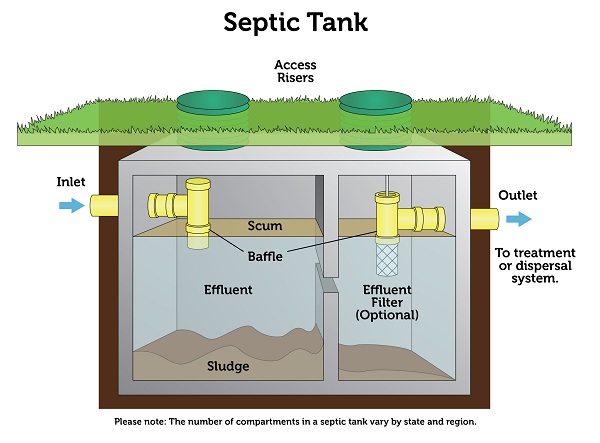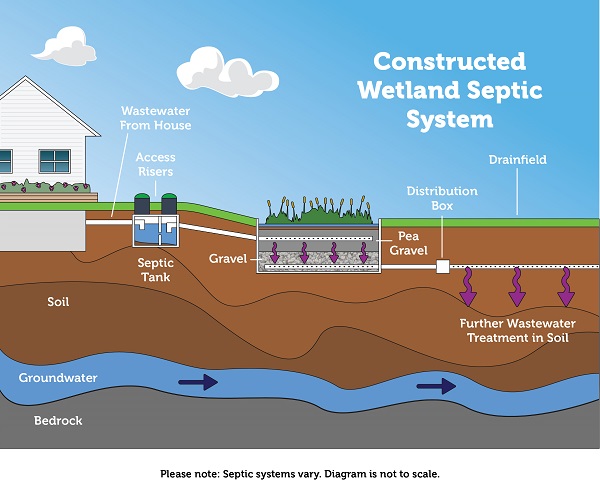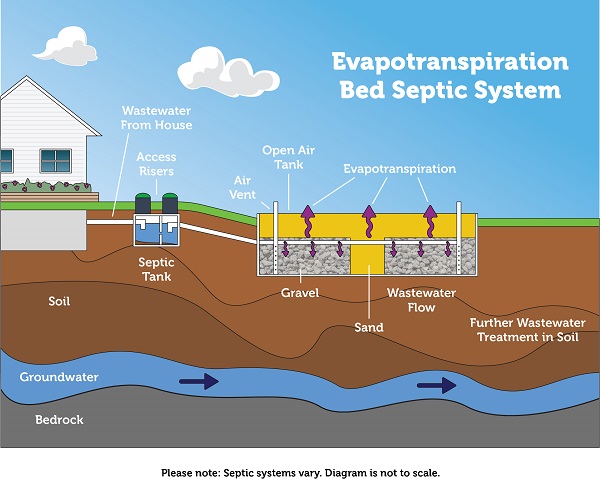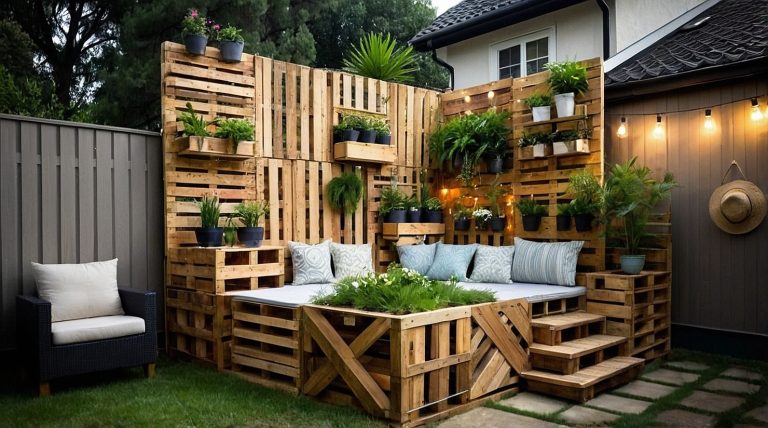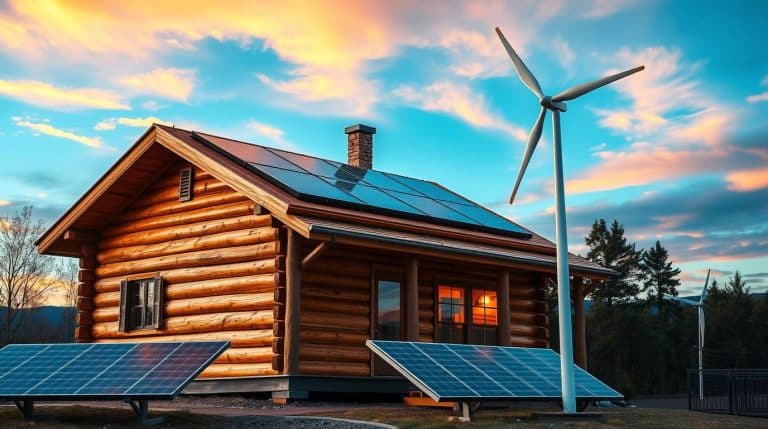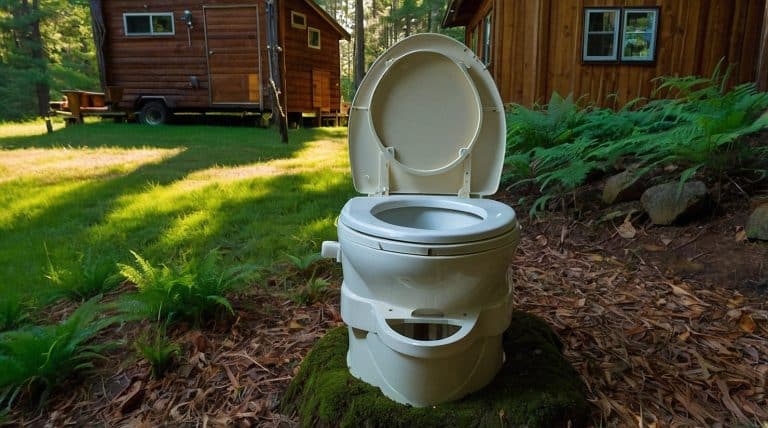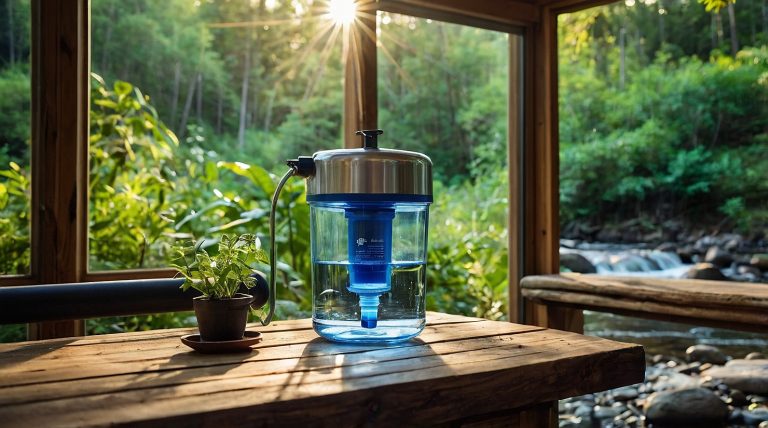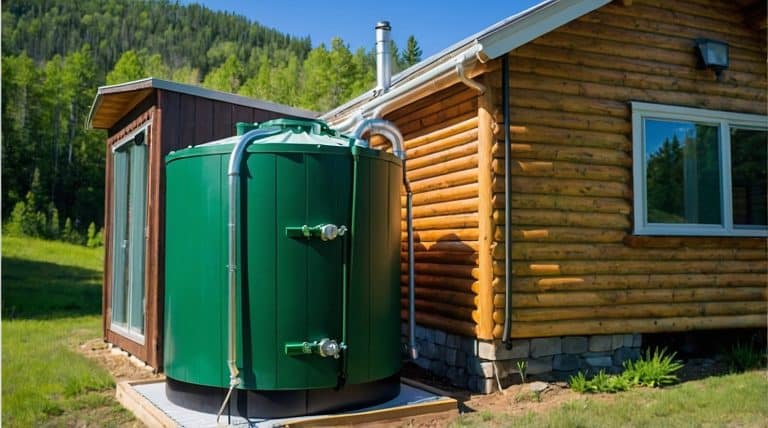Off Grid Septic System Hacks to Simplify Wastewater
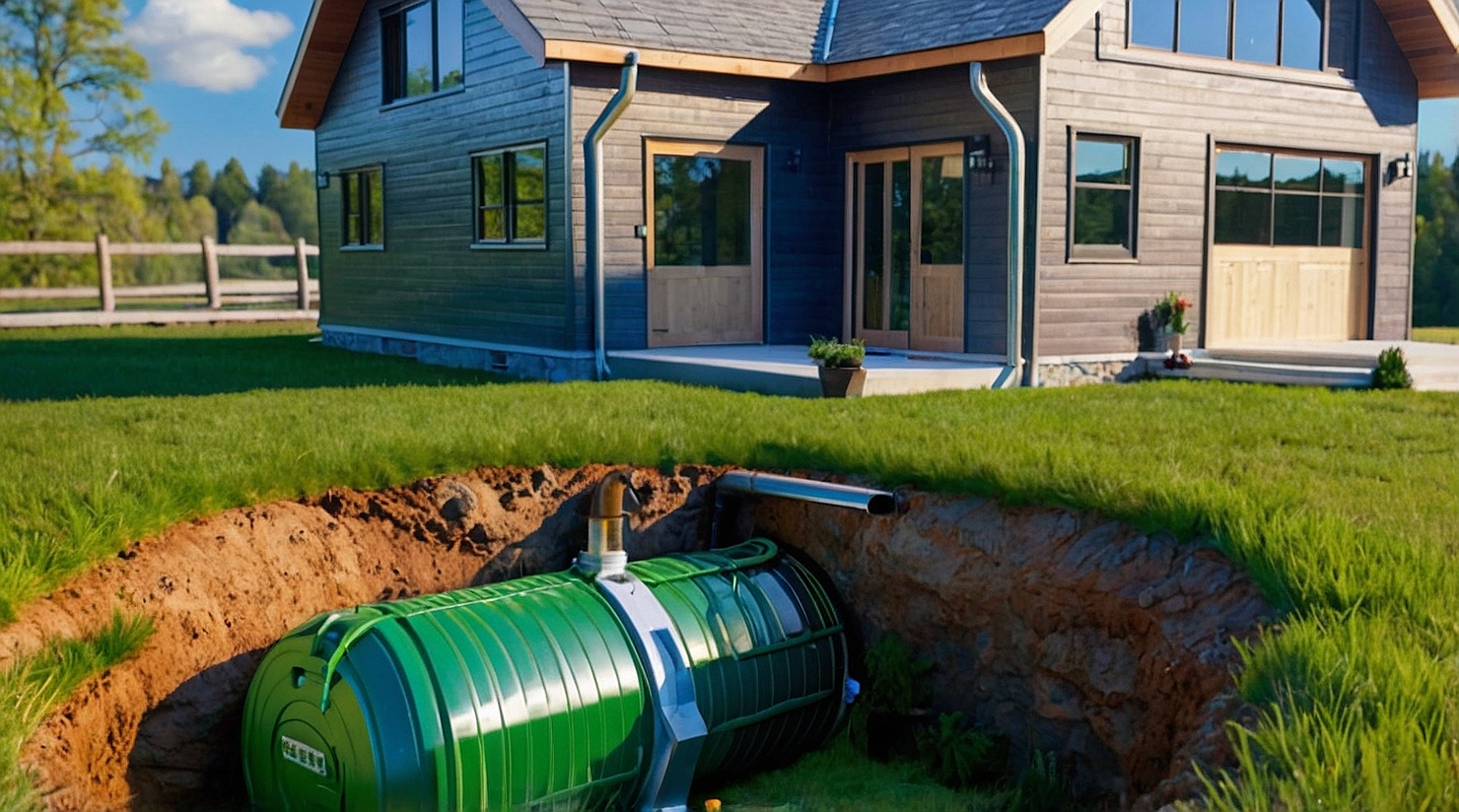
Living off-grid has its charms, but it also means handling waste disposal yourself. One crucial aspect is your off grid septic system. This guide provides various options for managing wastewater responsibly.
An off grid septic system plays a vital role in maintaining sanitation and environmental health in off-grid living. Unlike traditional sewer connections, it allows for independent waste management right on your property. Whether you choose a self-contained system, a centralized design, or a DIY approach, understanding how these systems work can help you make an informed decision.
Basic Terminology and Off-Grid Water Options
Understanding Greywater and Blackwater
Choosing the right off grid septic system is crucial for sustainable living. Before diving into the options, let’s get into the basics and clarify the difference between greywater and blackwater, two fundamental terms in off-grid water management:
- Greywater: This refers to wastewater generated from sources like bathroom sinks, showers, bathtubs, and washing machines. It doesn’t include toilet waste.
- Blackwater: This term designates wastewater from toilets containing human waste, urine, and toilet paper. Because of its potential to carry pathogens, blackwater requires more extensive treatment than greywater before it can be safely reused or discharged. Effective blackwater management is essential for protecting environmental and public health.
Off-Grid Wastewater System Options
Now that we understand the difference between greywater and blackwater, we can explore some of the available off-grid wastewater system options. Several solutions cater to various needs and budgets:
- Septic Systems: A conventional septic system uses a combination of natural processes and a buried tank to treat and dispose of wastewater. While requiring professional installation, an off grid septic system is a reliable long-term solution for many off-grid homes. Learn more about how septic systems work.
- Composting Toilets: Break down human waste without using water, transforming it into usable compost. They are an excellent option for saving water and minimizing environmental impact. However, they require careful management and may not be suitable for all climates or households.
- Greywater Recycling Systems: These systems treat greywater for irrigation reuse, reducing freshwater consumption. From simple DIY systems to more complex setups, greywater recycling can be tailored to fit your needs and budget. Explore different greywater recycling options.
- Evapotranspiration Systems: These systems treat wastewater and then release it through evaporation and plant transpiration. They are often used in arid climates and require careful design to prevent soil contamination.
Choosing the right off grid septic system depends on various factors, including local regulations, budget, site conditions, water usage, and personal preferences. Careful planning and research are crucial for ensuring a safe, sustainable, and effective off-grid wastewater solution. Consulting with a qualified professional can help you determine the best option for your specific situation.
Off-Grid Waste Water Options
Now that we have covered the basics and explained some options for you to consider, let’s explore these choices in greater detail. This will help you find the best off-grid septic system that meets your needs while also maintaining a healthy environment.
Composting Toilets
Composting toilets offer an eco-friendly solution for off-grid wastewater management, diverting human waste from traditional septic systems or sewer lines. These systems utilize natural decomposition processes to break down waste into usable compost, reducing your environmental impact and conserving water. A variety of composting toilet options are available, ranging from simple DIY bucket systems to more complex, self-contained units with features like fans and ventilation.
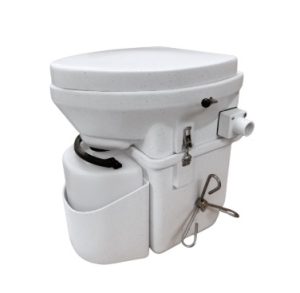
While a composting toilet is not a traditional off grid septic system, it can complement or even replace one in certain situations. For example, composting toilets eliminate the need for underground tanks or leach fields, making them ideal for sites with poor soil drainage or limited space.
Paired with a greywater system to manage water from sinks and showers, composting toilets can form a complete, water-saving alternative to a conventional off grid septic system. This combination reduces installation costs and enhances sustainability for off-grid living.
Curious about the various types of composting toilets out there? Explore our detailed guide that unpacks everything you need to know! Click here to get started!
Greywater Recycling Systems
Greywater can be repurposed for irrigation with a greywater recycling system. This sustainable practice reduces your reliance on freshwater sources and minimizes the volume of wastewater requiring treatment.
Greywater systems can be as simple as directing water from your washing machine to your garden or as complex as a multi-stage filtration and distribution network for your entire home. Proper system design and maintenance are crucial for preventing health risks and ensuring effective irrigation.
Septic Systems for Off-Grid Living
A septic tank plays a vital role in managing a home’s wastewater. It is a buried, watertight container designed to receive and partially treat raw household wastewater. Inside the tank, heavy solids settle to the bottom, while lighter materials and grease float to the top. The solids are contained within the tank, and the liquid wastewater is then released into the drain field for additional treatment and dispersal.
While often associated with grid-tied homes, an off grid septic system option can also be a viable option for off-grid properties.
These systems treat wastewater on-site, using a combination of settling and bacterial decomposition within a septic tank, followed by dispersal into a drain field or leach field for further filtration.
Different types of septic systems are available to suit varying soil conditions and site requirements. Depending on the specific design, off-grid septic systems may require alternative power sources for pumps or aeration.
Other Off-Grid Wastewater Solutions
Several off-grid wastewater treatment methods cater to specific needs and circumstances. For example, constructed wetlands mimic natural wetland ecosystems to filter and purify wastewater using plants and microorganisms. Additionally, we mentioned evapotranspiration systems earlier, which deserve further explanation.
Constructed Wetlands
A constructed wetland is a human-made system that treats wastewater by imitating the natural cleansing processes of wild wetlands. It uses a combination of plants, soil, sand, and gravel to filter and break down pollutants as water moves through the system.
During this process, contaminants like nutrients, pathogens, and organic matter are naturally removed through sedimentation, microbial activity, and plant uptake. Constructed wetlands can be designed as surface-flow systems, where water moves over the surface, or subsurface-flow systems, where water flows beneath the surface, reducing odors and exposure.
These systems are a popular choice for off-grid wastewater management due to their simplicity, low operational costs, and eco-friendly design. They can handle greywater, blackwater, or both, making them versatile for homes, cabins, and off-grid communities. Unlike a traditional off grid septic system, constructed wetlands enhance biodiversity by supporting plant and animal life while also purifying water.
Minimal maintenance is required, typically involving the removal of excess plants and sediment buildup. Their ability to create a self-sustaining, natural wastewater treatment system makes them an attractive solution for sustainable living.
Evapotranspiration
Evapotranspiration systems utilize the natural processes of evaporation and transpiration to treat wastewater, particularly suitable for arid climates. Before choosing a system, research local regulations and consult with professionals to determine the best fit for your off-grid property.
While not a conventional off grid septic system, an evapotranspiration system can be a viable alternative in regions with low rainfall and high evaporation rates. These systems are designed to prevent wastewater from leaching into the ground by encouraging it to evaporate or be absorbed by plants.
When integrated with an off grid septic system, evapotranspiration can enhance wastewater management by reducing the load on septic tanks and leach fields. This combination offers an efficient and environmentally conscious solution tailored to the unique challenges of off-grid living in dry climates.
Aerobic Treatment Systems
For properties with high water tables or dense soil, aerobic systems offer an alternative. These systems use oxygen to break down organic matter and filter wastewater.
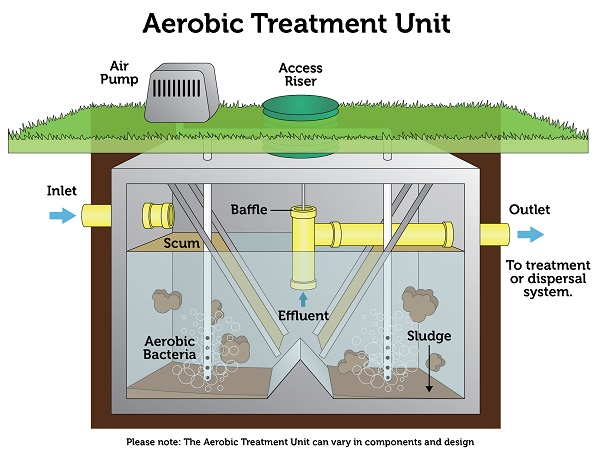
Aerobic Treatment Units (ATUs) function similarly to municipal sewage plants but are scaled down for individual properties. These systems work by injecting oxygen into the treatment tank, boosting bacterial activity to break down waste and treat nutrients in the effluent more effectively.
Many ATUs also include a pretreatment tank and a final treatment stage, often with disinfection, to further reduce pathogens and improve the quality of the treated water.
ATUs are particularly beneficial for properties with smaller lots, poor soil conditions, high water tables, or those located near sensitive water bodies where nutrient contamination must be minimized. They provide a versatile wastewater solution for challenging sites while maintaining a high level of treatment. However, homeowners should plan for ongoing maintenance to ensure the system operates efficiently throughout its lifespan.
Navigating Regulations and Permits
Implementing a suitable off grid septic system often requires navigating local regulations and obtaining necessary permits. Building codes and health department requirements vary by region and can significantly impact your system design and installation. Engaging with local authorities early in the planning process can streamline the permitting process and ensure compliance.
Research state regulations regarding septic systems to be prepared for potential requirements and restrictions. Consulting with a qualified septic system installer or engineer familiar with local regulations can be invaluable in navigating this process.
FAQs About Off Grid Septic System
Conclusion
Choosing an off grid septic system is an important decision that requires thoughtful planning. It’s not just about picking the first option that fits—factors like your home’s size, water usage, budget, and local regulations all play a role. Taking the time to evaluate your specific needs will help you select a system that works efficiently and aligns with your long-term goals.
The right system isn’t just a technical solution—it’s an investment in sustainable, off-grid living. By managing waste responsibly, you’re not only protecting your property but also contributing to the health of your local environment and community. Every thoughtful choice you make, from conserving water to reducing pollution, has a ripple effect. It’s a step toward living in harmony with nature, ensuring a cleaner, greener future for everyone.

